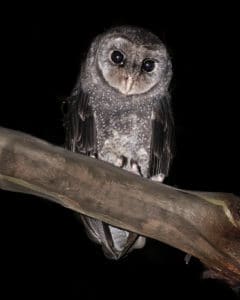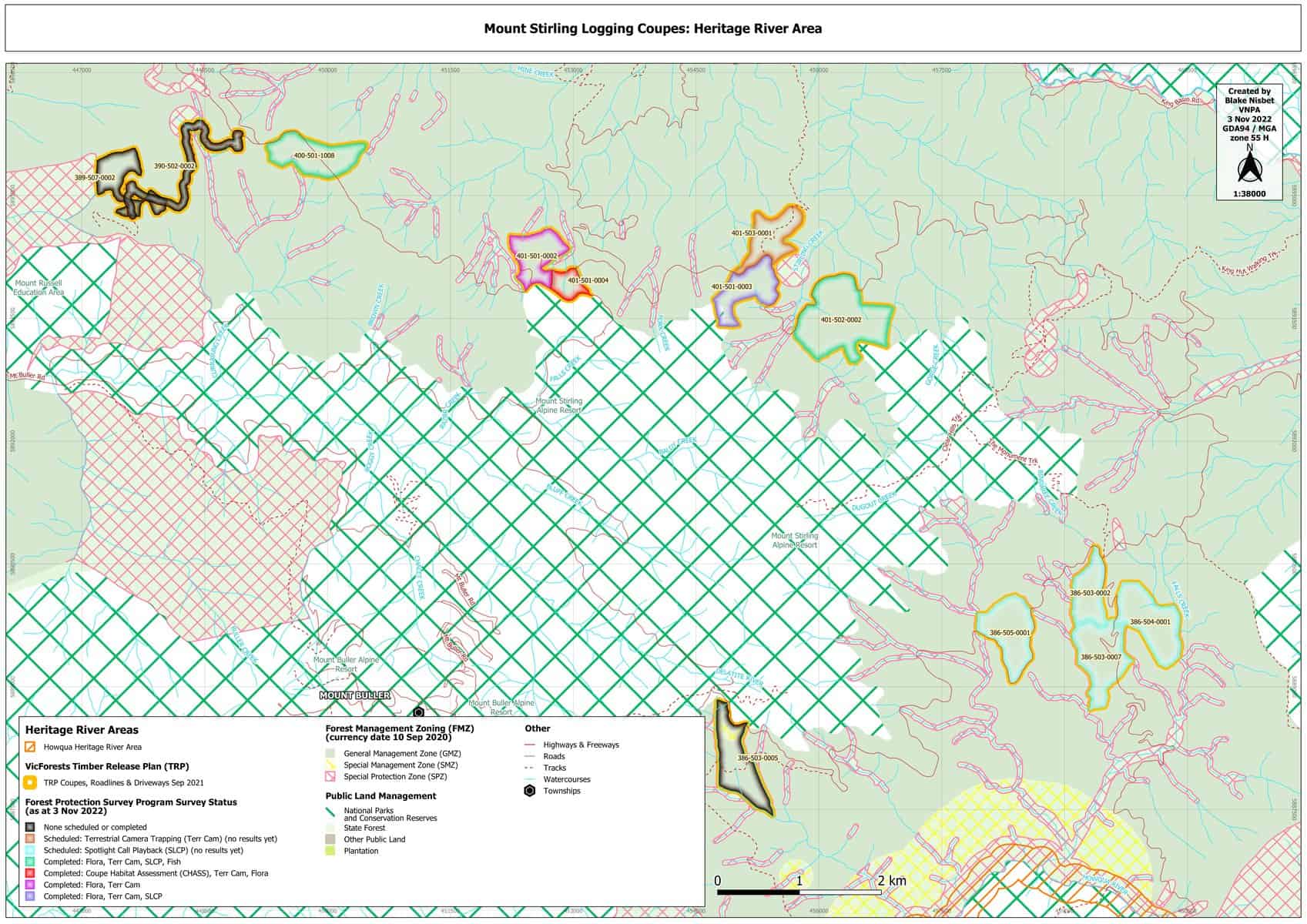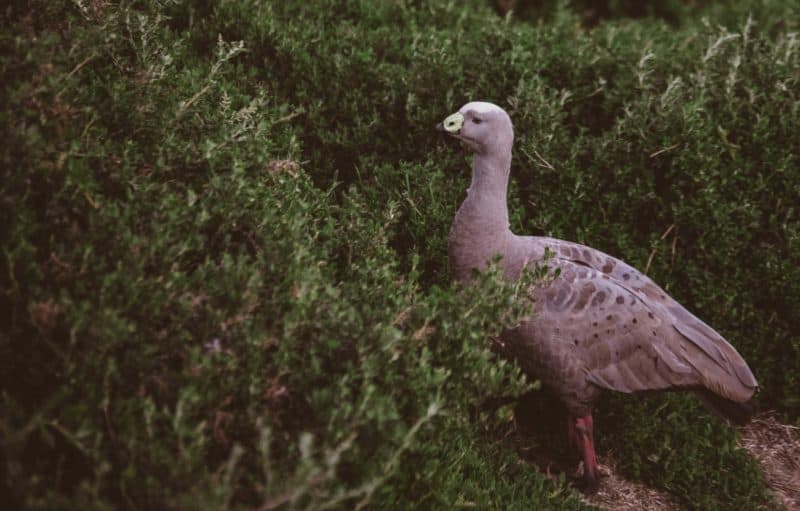NEWS 2 December 2022 |
VicForests has flagged logging for Victoria’s high country between the Mount Stirling Alpine Resort and the Alpine National Park.

Significant areas of forest across the high country are being clearfelled by the state-owned loggers, with no Immediate Protection Areas (IPAs) declared in the region. We are concerned that these remote areas are being targeted due to supply shortfalls in forests that have been granted temporary immunity from logging.
At least 11 areas (earmarked for November 2022 and April 2023) are listed on the VicForests logging schedule, with fears that logging could commence any day now.
We’re deeply concerned about the impacts of the proposed logging on the threatened wildlife that depend on these forests. These concerns are exacerbated due to recent Supreme Court findings that VicForests has (and is) failed to adequately locate and protect threatened species and their habitat prior to and during logging.
There are at least seven threatened plants and seven threatened animals within the Stirling-Alpine link area alone. Some are listed state-wide under the Flora and Fauna Guarantee Act 1988, or federally under the Environment Protection and Biodiversity Conservation Act 1999, with some appearing on both.
Logging would profoundly undermine the visitor values in the area, scarring the mountain escarpment and increasing sedimentation into beautiful mountain streams – including Falls Creek and Bindaree Creek, which hosts the stunning Bindaree Falls.
 The Stirling-Alpine Link ranges from mixed species forests at its lower elevations, up to the iconic Snow Gum Woodlands at its peak elevations.
The Stirling-Alpine Link ranges from mixed species forests at its lower elevations, up to the iconic Snow Gum Woodlands at its peak elevations.
These landscapes are important habitats for many threatened plants and animals. Endangered forest-dependent animals like the Greater Glider and Sooty Owl, both of which are highly susceptible to the impacts of logging, are at risk.
The Stirling-Alpine Link is also vital habitat for the westernmost population of the endangered Long-Footed Potoroo, and the only population west of the King River.
The forests proposed for logging include lower elevation mixed species forests. These contain large hollow-bearing trees and high-quality habitat for endangered animals like the Southern Greater Glider and Sooty Owl, and the vulnerable Yellow-bellied Glider.
In the higher elevation forests, VicForests has also proposed logging within the ecotonal forest, a mix of mature Alpine Ash Forest with scattered patches of Snow Gum Woodland mixed throughout. Some of these Snow Gums are long-unburnt and serve as ecological relics within this ecosystem which is usually prone to regular fires. Threatened plants, such as the endangered Royal Grevillea have been recorded in this area.
The Link’s creeks and streams are also safe haven for two critically endangered species, the Mount Stirling Stonefly, which is endemic to the Mount Buller-Mount Stirling area, and the Barred Galaxias, a native species of fish which is restricted to just 10 catchments of the Goulburn River system. There are key populations of Barred Galaxias near the Bindaree Falls, and VicForests have proposed logging in the catchments directly upstream. Increased sedimentation associated with the proposed logging could directly kill Barred Galaxias’ eggs, deteriorate food resources and decrease habitat quality.
In November 2019, over 96,000 hectares of Immediate Protection Areas (IPAs) were announced by the Victorian Government alongside the Victorian Forestry Plan to end native forest logging, but the high country missed out on receiving any reprieve from logging which continues to threaten these regions.
The Stirling-Alpine link should be declared an IPA along with other ecologically significant areas across Victoria’s high country, and comprehensively assessed to ensure that its value is recognised and that suitable protections are put in place.
It’s our long-standing vision that the forests surrounding the Mount Stirling Alpine Resort be linked with the Alpine National Park. Managed by Parks Victoria, this approach would improve recreational experiences, ecological management and the overall integrity of our Alpine region.
